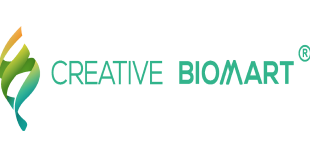
Bioanalysis laboratory automation is crucial to improve drug research and development processes. By automating tasks and streamlining experimental workflows, bioanalytical lab services can offer higher accuracy and efficiency in their methods and evaluations. The field of automation is constantly developing, with newer technological developments opening novel avenues in research and development. Hence, bioanalytics companies and bioanalytical services providers should stay informed about developments and trends in assay lab automation to yield higher benefits. The current article delves deep into laboratory automation in several aspects of bioanalytical studies, such as clinical bioanalysis services, biochemical assays, GCP and GLP bioanalysis, etc.
Automation and technology for bioanalytical laboratories
Scientists can improve automation efficiency by optimizing laboratory processes. This approach includes analyzing and redesigning workflows and methodologies to remove hurdles and streamline experimental operations. Researchers can identify redundancies, delays, and inefficient steps to optimize resources, reduce turnaround times, and enhance productivity. However, optimizing laboratory processes needs an in-depth understanding of study objectives and thorough information on automation technologies compatible with existing set-ups.
Data standardization and integration are necessary to ensure accuracy in automation systems. One should integrate data from different sources to eliminate errors caused due to manual entry and minimize data inconsistencies. Besides, researchers can standardize protocols, workflows, and formats across departments and instrumental set-ups to ensure smooth data exchange and instill confidence in the generated data. Moreover, automated quality control and data validation systems help generate more accurate and reliable study results.
Scalability and flexibility are crucial when implementing automation in a bioanalysis lab. Assay labs should consider elements necessary for accommodating changing needs and future growth. Scalable automation set-ups can adapt to evolving sample volume requirements and changing experimental needs. Flexibility in automation lets researchers customize experimental workflows, adapt to evolving research demands, and integrate newer technologies. Selecting a modular automation set-up can offer the flexibility and scalability to meet rising drug development demands.
Robotics has revolutionized sample handling and laboratory workflows. They reduce human errors and deliver consistent and precise execution. Robotic process automation performs repetitive tasks across different software systems. By integrating robotic process automation, bioanalytical laboratories can automate report generation, data entry, and data transfer across different laboratories, enhancing accuracy and efficiency.
Artificial intelligence and machine learning have significant applications in laboratory sciences. By using these technologies, bioanalytical labs can analyze complex data points more efficiently in less time, evaluate patterns, and extract insightful data. Automation powered by artificial intelligence and machine learning offers real-time control and monitoring of laboratory processes. Artificial intelligence systems continuously learn from large data sets and enable optimization of study parameters, identification of anomalies, and timely alerts to improve accuracy and efficiency in laboratory automation.
Moreover, the Internet of Things provides remote monitoring and collection of experimental data. Researchers are employing Internet of Things devices to gather data from instruments, sensors, and equipment without personal interventions. Remote monitoring helps evaluate experiments in real-time and enhances process control and proactive maintenance. Besides, connectivity between systems and laboratory instruments improves the integrity of study data, allows smooth integration of automated solutions, and delivers efficient data analysis and transfer among laboratories.
Conclusion
automation and technology are critical in enhancing efficiency in bioanalytical laboratory processes.







